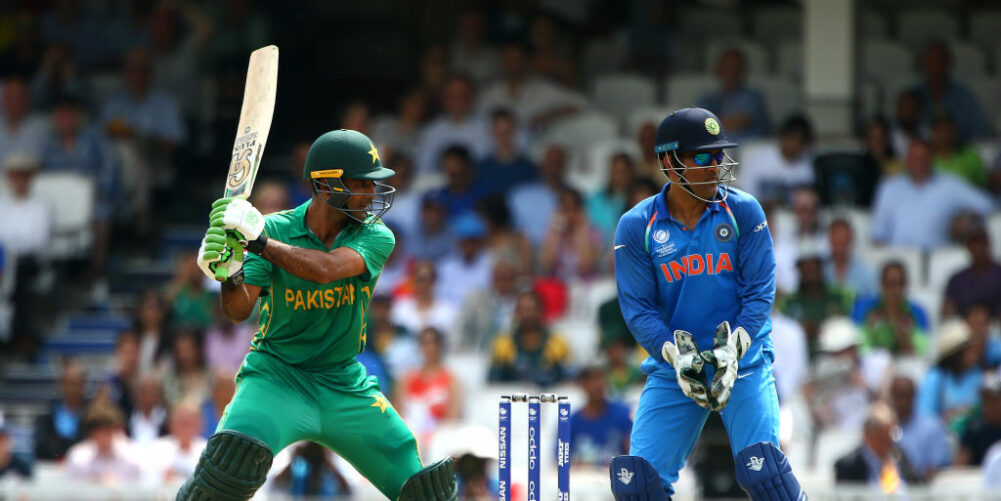It is not looking good for the always much-anticipated World Cup match between India and Pakistan, scheduled to take place at Old Trafford on June 16.
That meeting, between Asia’s two longest established cricket teams, is in jeopardy following a recent terror attack in disputed Kashmir which killed 40 Indian soldiers.
Since then, there have been tit-for-tat air raids in the area as both the retaliation and rhetoric escalate, the latter all the way to that match in Manchester.
So far, the Board of Control for Cricket in India (BCCI), no
doubt with the backing if not the behest of Narendra Modi’s government, has
lobbied the International Cricket Council and it’s members to boycott Pakistan.
The terse request has been for the others to “sever ties with countries from
which terrorism emanates”.
With Pakistan’s recently elected Prime Minister, Imran Khan,
one of the great all-round cricketers in history, the game has even more
political heft than before. Yet boasting two cricket-mad populations in the
hundreds of millions, this is not the first time politics between India and Pakistan,
or indeed terrorism, has impacted on the game in those two countries.
Due to the constant clashes in Kashmir, a beautiful, mountainous tract of land whose precise borders have been fought over since Partition in 1947, India has not toured Pakistan for Test matches since January 2006, while Pakistan last played a Test in India on December 8, 2007.
The main driver of this stand-off has been the Mumbai terror
attacks of 2008, in which a group called Lashkar-e-Taiba killed 164 people.
They’d come by sea having used Pakistan as a base, an atrocity that still cuts
deeply some 11 years later.
Of course, not many have ventured to play cricket in Pakistan since the Lahore terrorist attack in 2009, when the Sri Lankan cricket team were targeted. As a result, Pakistan has played their ‘home’ fixtures in the United Arab Emirates, an arrangement that has been in place for almost a decade.
Yet, India refuse to play them even there, the ICC so far unable to persuade them to fulfil the bilateral home and away alternation, at least with Pakistan, needed to fulfil the requirements of the Future Tours Programme.
One cannot help but wonder how a World Test Championship, due to start this July, might function without the two playing each other?
I don’t know if India view the Test team as the truest emblem of their country in the world, but they have continued to play white-ball cricket matches against Pakistan.
Since 2010, 19 such matches have taken place. Yet of those, only three 50-over matches and one T20, all in 2012/13, took place outside tournaments like the World Cup, the World T20 or the Asia Cup, many of them in neutral venues.
Those four games, a brief and surprising respite in
hostilities, were all played in India and came during the Prime Ministership of
Manmohan Singh, which ended, perhaps not coincidentally, soon after those
matches were played. Since then, Prime Minister Modi and his Bharatiya Janata
Party have held office, their trenchant nationalism unlikely to be diluted any
time soon by a thaw in relations with Pakistan.
Modi will be seeking another term when India’s general
election gets under way in April and May, and that in many ways is a problem
for those trying to keep this World Cup match on the card. A hardliner when it
comes to Pakistan, there is little chance of Modi, his government, or the BCCI,
which is closely allied to both, are going to compromise in any way until the
election is over.
Despite being cricket’s pre-eminent powerbroker, India will
not succeed in getting Pakistan booted out of the World Cup, there is simply
not the support for such a move. They can, however, refuse to play them, as
England refused to play Zimbabwe and New Zealand refused to play Kenya in the
2003 World Cup.
As in both those cases, they would hand two points to their rivals, a gesture that may cost them when the four semi-final places are decided. Of course gifting Pakistan two points boosts their chance of making the semis so even if India did reach the last four they’d have a 33 per cent chance of meeting their neighbours once more. If that did happen, it would surely not play well with the Indian public, politically, if Pakistan were allowed to reach the final unchallenged.

Politics were at play in the 2003 World Cup yet England’s
and New Zealand’s beef was over security. Nasser Hussain’s team had been
threatened by a group calling themselves the ‘Sons and Daughters of Zimbabwe’.
Nobody gave the group much credibility but it put the players in an impossible
position and they opted not to play the match in Harare. It was a decision
which, in its sacrifice of two points, almost certainly contributed towards
them not reaching the knockout stage.
Sporting boycotts are not rare. Athletes from the United
States did not compete in the 1980 Olympics in Moscow in protest of the USSR’s
invasion of Afghanistan. In all, 65 countries joined them but with 80 countries
competing the games went ahead albeit with a tangible sense of dilution.
If India do carry through their threat of boycotting the
match, and they will keep everyone guessing until the last moment as they love
brinkmanship, it will be a lone protest. Evidence of Pakistan’s government
sponsoring terrorism, justifiable grounds for them to be booted out of a
cricket World Cup, has not yet been presented.
Until it is, everyone from the ICC to those hoping to secure tickets for the match, will be left dangling while these two sworn enemies resume hostilities on that most febrile of borders. As for that clash on the cricket pitch between them – it may never happen.
DEREK PRINGLE / Photo: Getty Images












